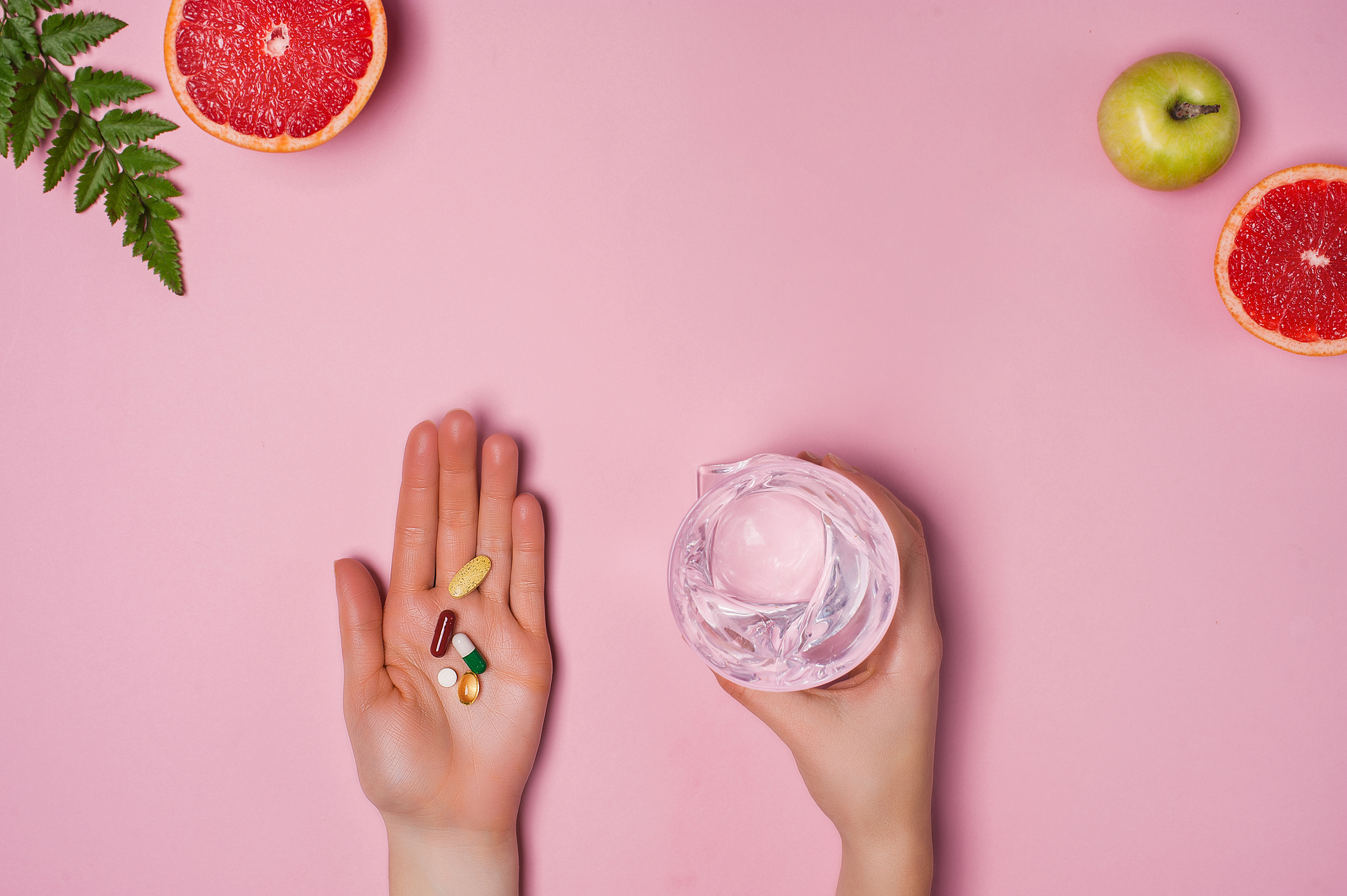

There’s certainly been a concerted push to label supplementation as unnecessary or dangerous and paint the folks that practice this health-promoting habit as naïve and gullible.
But what’s truly naïve is believing that the food available to us today is nutrient-dense enough to keep your body healthy — or that this prejudice against supplementing is in your best interest…
Stuck in the food matrix
Getting all of your vitamins and minerals from food would be a great idea if you could jump into a time machine and travel back a century or so…
But our fruits and vegetables are lagging in the nutrient content they once provided. According to the report, “Still No Free Lunch” by the Organic Center, as crop yields have been pushed higher, nutrient density has fallen.
Researchers from Washington State University who analyzed 63 spring wheat cultivars grown between 1842 and 2003 found an 11 percent decline in iron content, a 16 percent decline in copper, a 25 percent decline in zinc and a 50 percent decline in selenium.
That doesn’t mean you shouldn’t enjoy a healthy, whole-food diet. You just may need to consume more of the good, organic stuff to get the nutrients you need. That means no skimpy trips through the drive-thru or taking the easy way out with over-processed, quick-fix meals that have no measure of nutrition.
But there is still the bioavailability hurdle…
The fact is, many of the vitamins your body needs to function optimally simply aren’t easily absorbed into your cells in their natural states. Instead, they’re what scientists call “stuck in the food matrix.”
While the larger macronutrients like carbohydrates and proteins can be extracted from this matrix by the process of chewing and enzymatic digestion and are therefore approximately 90 percent bioavailable, some very important vitamins, like folic acid, have been shown by research to be 20 to 70 percent less bioavailable when they come from a food source versus a supplement.
And this doesn’t even take into account the inhibitory components of food that reduce the bioavailability of the nutrients even further. These include things like phytic acid found in some plant-based foods that strongly bind minerals such as calcium, iron and zinc, preventing you from benefitting from them, or the competition for absorption that can occur between nutrients like calcium and iron.
All of this makes supplementing vitamins and minerals an important tool if you want to optimize your health.
So, why all the negativity about supplementing? You have to consider the motives of the medical industry. You being in charge of your own health cuts into their profit margin.
But instead of getting caught up in that, let’s take a look at how you can get the most from supplementing by following a few simple rules…
Supplement do’s
- Have your vitamin and mineral levels checked during your yearly checkup. If your doctor doesn’t offer that, find one who does. Your nutrient requirements change as you age, making it even more important.
- Limit your consumption of caffeine since it promotes the excretion of vitamins and minerals. Because coffee appears to offer much in the way of disease prevention, enjoy up to 2 or 3 cups a day, if you prefer, and decrease your caffeine from other less-healthy sources, like sodas, first.
- Take your multivitamins with a meal, because most vitamins are best absorbed with food. An exception is iron, so if you have been told you have an iron deficiency, do the opposite.
- Take your vitamin D with your largest meal and be sure to include some healthy fats like avocados or coconut oil to improve absorption. And be sure to take a supplement with an adequate dosage. The current RDA is woefully low. To bring levels up and maintain them from deficiency, most experts recommend 4000 to 5000 IU daily.
- Split your daily vitamin C into two to three doses since this health powerhouse only lasts for a few hours in your bloodstream.
- When taking iron, vitamin C can aid absorption. It’s a good idea to take it with a glass of orange juice. Milk and calcium supplements can decrease iron absorption.
- If you’re feeling frazzled, make sure you’re getting enough antioxidants, B vitamins, fiber and minerals such as chromium, copper, iron, zinc and magnesium, as the absorption or retention of these nutrients can be decreased during times of stress.
- According to a 2012 review published in the Journal of Environmental Health, following an alkaline diet may improve vitamin absorption.
Supplement don’ts
- Don’t take prescription drugs at the same time as your vitamin/mineral supplements, especially calcium. Calcium competes for absorption in the gut and can lower the effectiveness of some medications.
- Don’t combine zinc with iron or calcium supplements.
- Don’t take probiotics within two hours of taking antibiotics.
- While getting enough fiber is important, don’t take more than four grams of soluble fiber like psyllium prior to taking your vitamins or minerals as too much fiber can impair absorption.
- Don’t drink alcohol within four hours of taking a nutritional supplement since it interferes with normal digestion and reduces absorption.
Additionally…
You also have to be careful which vitamins you take together because some vitamins can cancel each other out.
For example, vitamin A inhibits the absorption of vitamin K and its forms like K2, — while vitamin E inhibits its activity. So, be careful not to take these supplements at the same time. But in all honesty, few people need to supplement vitamins A and E.
So, the next time you hear someone say that supplementing isn’t necessary, you’ll laugh and know that your mother really was looking out for you when she gave you those grape-flavored Flintstones.
Sources:
- Crop Yields Expand, but Nutrition Is Left Behind — Worldwatch Institute
- Nutrient bioavailability: Getting the most out of food — EUFIC
- Do Some Vitamins Inhibit the Absorption of Other Vitamins? — San Francisco Chronicle

